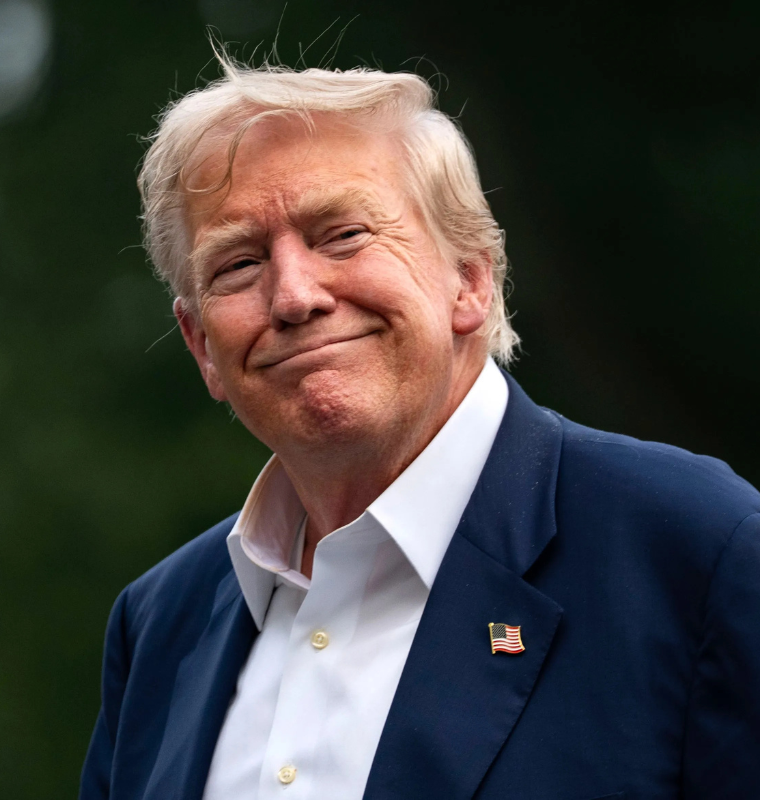Hidden Power Networks
By
Last updated:
September 30, 2025
First Published:
September 30, 2025

The Invisible Web of Influence
Behind the headlines and boardroom deals lies an intricate network of secretive clubs, elite societies, and private networks that profoundly shape the global business landscape. These organizations, ranging from historic gentlemen’s clubs in London to invitation-only think tanks in New York and private international forums, act as incubators for influence, strategic alliances, and confidential information exchange. Membership often grants access to decision-makers, investors, and policymakers in ways that public channels cannot replicate, giving members an unparalleled edge in shaping markets, policies, and industries worldwide.
Social Capital and Strategic Alliances
Secret clubs are more than social gatherings—they are engines of strategic collaboration. In these settings, members forge relationships that translate into high-stakes partnerships, investment opportunities, and market intelligence. CEOs, venture capitalists, and top executives leverage these networks to identify trends before they become mainstream, share risk assessments, and coordinate initiatives across borders. The exclusivity of membership ensures that trust is established rapidly, and conversations remain confidential, creating a unique environment where business strategy and influence intersect seamlessly with social interaction.
The Role of Cultural and Historical Prestige
Many of the most influential secret networks are steeped in history, tradition, and cultural prestige. London’s private clubs, New York’s exclusive business societies, and Geneva’s elite forums all carry legacies that confer credibility and social status upon their members. Being part of such networks signals influence and access, often creating a self-reinforcing cycle where membership enhances one’s ability to attract partners, capital, and opportunities. This historical gravitas adds an extra layer of authority, making the insights and endorsements of these networks highly coveted in global business circles.
Global Reach and Cross-Border Influence
Elite networks are increasingly international, reflecting the globalization of commerce and finance. Through cross-border memberships and transnational forums, leaders from different continents exchange perspectives, explore joint ventures, and influence international markets and policies. Such networks can impact global trade, mergers, and investment flows, often operating behind the scenes with little public scrutiny. The decisions made within these networks can ripple across economies, affecting everything from market valuations to regulatory frameworks and even the geopolitical landscape.
Secrecy, Exclusivity, and Opportunity
The defining characteristic of these elite circles is secrecy. Entry is tightly controlled, and participation often requires sponsorship, proven track records, or invitations from current members. This exclusivity preserves the value of the network while ensuring that only those with aligned interests, trustworthiness, and influence can access the information and opportunities shared within. While this creates powerful advantages for members, it also raises questions about inequality, transparency, and the broader societal impact of decisions made within private, unregulated networks.
Decision-Making Behind Closed Doors
One of the most critical aspects of secretive business networks is their influence on decision-making at the highest levels. Within these exclusive settings, CEOs, investors, and policymakers exchange insights about upcoming market shifts, emerging technologies, and regulatory trends before the information becomes public. Such discussions often shape strategic choices that affect entire industries—from mergers and acquisitions to investment priorities and international trade decisions. The confidentiality of these exchanges allows members to take calculated risks and make bold moves without fear of immediate public scrutiny, creating a competitive edge that can be difficult for outsiders to replicate.
Cultivating Trust and Influence
Trust is the lifeblood of these elite networks. Membership is often contingent on personal reputation, endorsements from existing members, and a demonstrated history of success or influence. By bringing together individuals with aligned goals and values, these networks create an environment where collaboration is seamless, and information can flow freely without fear of misuse. Influence within these circles often translates into tangible business advantages, such as insider perspectives on investment opportunities, access to high-value clients, or the ability to shape industry norms. Over time, members develop relationships that extend beyond formal meetings, building lifelong alliances that further consolidate their economic and strategic power.
The Ripple Effect on Global Markets
The decisions and collaborations that occur within these secretive networks extend far beyond the private clubs themselves, often creating ripple effects across global markets. Coordinated strategies, joint investments, or shared intelligence can influence stock valuations, disrupt competitor strategies, or shape the regulatory environment in ways that benefit network members. Even seemingly minor insights, such as a predicted regulatory change or an emerging technological trend, can give members a critical first-mover advantage. These impacts underscore the disproportionate influence of elite networks on the global economy, highlighting how private, largely unseen interactions can drive decisions that affect millions of businesses, investors, and consumers worldwide.
Financial Leverage and Investment Coordination
Secret business networks often serve as hubs for coordinating high-stakes investments and financial ventures. By sharing insights on emerging markets, startup potentials, or distressed assets, members can strategically pool resources or time their investment moves for maximum impact. These coordinated actions often allow members to capitalize on opportunities before they become widely known, giving them a disproportionate influence over asset valuations and market trends. The exclusivity of these networks ensures that such sensitive information remains controlled, creating a financial advantage that can generate enormous returns for participating elites.
Shaping Policy and Regulatory Landscapes
Beyond business and finance, elite networks frequently exert influence over public policy and regulatory environments. Members often include former government officials, lobbyists, and thought leaders who can provide strategic guidance on policy shifts, taxation, and industry regulations. Through informal discussions and private forums, members anticipate regulatory changes and align their business strategies accordingly. While this can drive efficiency and innovation within certain sectors, it also raises concerns about transparency and accountability, as decisions impacting millions of people may be subtly guided by conversations held behind closed doors.
Cultural Capital and the Power of Exclusivity
The prestige associated with membership in these networks enhances both social and professional capital. Being part of an elite club signals credibility, influence, and access, which can open doors to partnerships, acquisitions, or executive opportunities that might otherwise remain unattainable. This cultural capital reinforces the network’s value and perpetuates its exclusivity, ensuring that only those with proven achievements, reputation, or connections can participate. The combination of social trust, strategic alliances, and information asymmetry creates a powerful ecosystem where influence is both concentrated and self-reinforcing, shaping the trajectory of business elites on a global scale.
The Psychology of Influence and Belonging
Membership in elite networks is not merely about access to information—it also satisfies a deep psychological need for belonging and influence. Being part of a closed circle provides members with validation, recognition, and the sense that they are operating at the forefront of global decision-making. This psychological reinforcement encourages members to contribute actively, share insights, and participate in initiatives that can shape industries or markets. The sense of shared purpose and mutual trust also creates a self-reinforcing dynamic, where the collective decisions of the group carry more weight and influence than individual efforts alone.
Innovation and Idea Incubation in Private Networks
Elite networks often act as incubators for innovation, offering a safe space where unconventional ideas can be discussed and refined before exposure to broader markets. By connecting individuals from diverse industries and geographies, these networks foster cross-pollination of ideas that might never emerge in conventional corporate settings. Startups, emerging technologies, and novel business models often find their first champions within these private circles. The confidentiality and trust embedded in these networks allow members to brainstorm, experiment, and align resources, effectively turning private gatherings into laboratories for high-impact innovation.
The Global Ripple of Strategic Decisions
Decisions made within these networks do not stay confined to boardrooms—they reverberate across global economies. Strategic alliances, early-stage investments, and policy insights shared within these circles can influence entire industries, shift market dynamics, and alter competitive landscapes. For example, coordinated investment moves in tech, energy, or finance can drive valuations, create new industry standards, or even influence regulatory changes. The cumulative effect is that a relatively small, highly connected group of elites can indirectly shape economic and corporate trends worldwide, highlighting the disproportionate power of networks that remain largely invisible to the public eye.
Mentorship and Knowledge Transmission
A key function of elite networks is the transmission of knowledge through mentorship and informal guidance. Senior executives, seasoned investors, and industry veterans often use these circles to mentor emerging leaders, passing on insights that are rarely documented or accessible publicly. This mentorship extends beyond technical know-how, encompassing negotiation strategies, crisis management, and the subtleties of influence in global markets. By embedding these lessons within a trusted network, members accelerate the development of future leaders, ensuring the continuity of influence and reinforcing the long-term stability of these private ecosystems.
Risk Management and Strategic Hedging
Elite networks also provide a platform for sophisticated risk management and strategic hedging. By sharing early intelligence on political developments, regulatory changes, or market disruptions, members can anticipate threats and opportunities with far greater accuracy than competitors outside the network. Collaborative discussions allow for coordinated strategies to mitigate financial exposure, enter new markets safely, or pivot business models in response to unforeseen challenges. This collective foresight not only protects individual members but can also shape broader industry practices, illustrating the systemic influence of these closed circles on global business stability.
Cultural Norms and Ethical Codes Within Networks
Despite their secrecy, most elite networks operate under well-established cultural norms and ethical codes that govern member conduct. Loyalty, discretion, and mutual support are paramount, ensuring that sensitive information is safeguarded and that interactions maintain trust. Members are often expected to contribute actively to the network, share valuable insights, and uphold the reputations of both the network and individual participants. These internal norms create a self-regulating system that reinforces cohesion, minimizes conflicts, and amplifies the influence of collective decisions. By cultivating a culture of responsibility and mutual accountability, these networks ensure their longevity and continued impact on global business dynamics.
Final Thoughts
Secret clubs and elite networks represent a hidden architecture of power that profoundly shapes global business. They operate as both social and strategic ecosystems, where trust, discretion, and exclusivity create unparalleled opportunities for influence. Within these circles, high-level executives, investors, and policymakers exchange insights, mentor emerging leaders, and coordinate complex strategies that ripple across industries and economies. The combination of personal relationships, shared intelligence, and cultural prestige ensures that members can act decisively and collaboratively in ways that public forums cannot replicate.
These networks are also incubators for innovation and foresight. By connecting individuals across industries, geographies, and expertise, they foster the cross-pollination of ideas that can lead to groundbreaking ventures, strategic alliances, and early adoption of emerging technologies. Decisions made within these private settings—ranging from investment moves to regulatory navigation—can influence entire markets, illustrating the outsized impact of a relatively small, highly connected group. Moreover, the mentorship and knowledge-sharing that occur within these networks ensure the continuity of influence, grooming future leaders who perpetuate the cycle of strategic power and elite coordination.
At the same time, these networks highlight the complex ethical and societal dimensions of concentrated influence. While they offer efficiency, innovation, and insight, their exclusivity can exacerbate inequality and limit transparency. Yet, their enduring appeal underscores a fundamental truth about global business: relationships, trust, and access are as critical as knowledge and capital. Understanding these hidden networks provides a window into the mechanisms by which business elites shape markets, industries, and policies worldwide, revealing that much of what drives global commerce occurs not on public stages but behind closed doors, in rooms where decisions quietly reverberate across the world.
Popular articles
Subscribe to unlock premium content
Global Cultures and the Hidden Drivers of Productivity and Happiness

The Future of Personalized Medicine

Digital Nomads and the New Global Economy

Global Cultures and the Hidden Drivers of Productivity and Happiness

The Future of Personalized Medicine

Global Cultures and the Hidden Drivers of Productivity and Happiness









